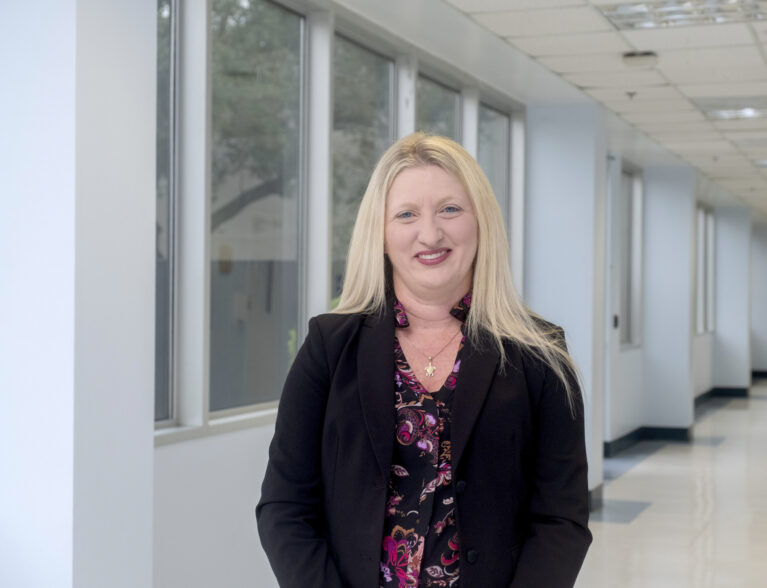
As we head into the second half of January, it is crunch time for New Year’s resolutions. Will they hold, or not?
With every new year comes a new list of resolutions with the most popular being improved diet and fitness, quitting bad habits like smoking or drinking, and improving financial health. Lately, improving mental health has become an increasingly popular resolution, especially among young adults.
A recent survey from Forbes Health asked 1,000 adults about attitudes surrounding resolution-setting and what types of goals were prioritized. More people cited improved fitness as their top resolution (48 percent) compared to improved finances (38 percent), along with improved mental health (36 percent), weight loss (34 percent) and improved diet (34 percent).
Results from a poll conducted by Healthy Minds and published by the American Psychiatric Association mirror the same top resolutions in the same order. Among those who are making mental health-related resolutions, 67 percent plan to exercise more, 49 percent plan to meditate, 40 percent plan to focus on spirituality and 35 percent plan on seeing a therapist.
Other plans include taking a break from social media, journaling, using a mental health app, and spending more time in nature.
There was a big disparity in the age of those prioritizing mental health, with nearly half (44 percent) of young adults aged 18 to 34 planning to make mental health resolutions, while only 7 percent of those over 65 planned to focus on their mental wellbeing.
“I think the reason for the difference in attitudes toward mental health is based on the public’s perception of mental illness now vs. 30-to-50 years ago,” said Cecelia Stalnaker-Cauwenberghs, a licensed mental health counselor and administrative director of Cleveland Clinic Indian River (CCIRH) Behavioral Health Center. “Over the past 20 years, mental health has been in the headlines and has become normalized. Young adults are more inclined to seek treatment without the fear of being judged or labeled.
“We’ve [also] seen a huge increase in anxiety disorders in children and young adults who don’t know how to interact with other people, so they are essentially isolating themselves.
COVID has a lot to do with it because kids were locked up in their houses, unable to engage in activities. There was no one there really guiding them and helping them interact with other children. So now [many of] these kids are laid back and timid. They don’t want to be involved in large groups out of fear of the responses they’ll receive, so they hide behind the computer on social media.”
With social anxiety so prevalent in young adults, mental health professionals are figuring out the best therapeutic steps to help them cope and overcome the illness.
“The first step is to recognize what is causing this social anxiety,” Stalnaker-Cauwenberghs said.
“We encourage them to walk away from their devices and do more beneficial activities. We help them identify the things that they enjoy that will decrease their stress. It might be walking on the beach, journaling or even building paper airplanes.
“We ask our patients to spend more time in nature because connecting with nature helps ground and balance the psyche. Meditation is another way to relieve stress and anxiety. We even re-educate them on how to connect with others outside of social media by joining a group that has like interests. It may be a kayaking club, a book club or bowling. Just interacting with others in a comfortable environment can ease the way into handling an uncomfortable situation.”
Stalnaker-Cauwenberghs noted that guidance is also given on improving physical health because physical health and mental health are entwined. Sleep is another defining factor in mental wellbeing, so getting enough sleep is crucial to recovery.
Making resolutions is always easier than keeping resolutions, so making attainable goals is important.
“Listen to what others are saying because there is some truth in what they are saying as long they love and care about you,” Stalnaker-Cauwenberghs advised. “If they are saying you’re up all night playing video games when in reality you are only up from 10 p.m. to 4 a.m., that is still unhealthy. Instead of resolving to end the nightly gaming all at once, try reducing the time spent by an hour each month until you are not playing at all in the middle of the night and getting the sleep you need.
“The same strategy applies to quitting a bad habit like smoking. If you take in small bites, you’ve got a better chance at being successful.”
Cleveland Clinic Indian River Hospital Behavioral Health Center offers inpatient psychiatric care, outpatient therapy services and intensive outpatient programs (IOPs) for patients of all ages with mental health needs. The center has 12 beds for children and 34 for adults who require 24/7 inpatient treatment.
The program also has intensive outpatient programs for children and adults who are experiencing mood disorders like depression or bipolar disorders. These patients come to the campus three days a week for three hours each day and engage in group therapy that teaches them how to change their thoughts. After an initial 12-week program, counselors formulate a step-down schedule, eventually reducing the therapist visits to as few as once a month.
And since literally everyone would benefit from recognizing the signs and symptoms of mental health challenges and crises, the CCIRH Behavioral Health Center offers free mental health first aid courses where attendees can learn how to recognize warning signs and how to get help for a person in a mental health crisis. More than 1200 Indian River County residents have already taken the eight-hour course to become certified. Why not make it your New Year’s resolution to learn more about mental health?
Cecelia Stalnaker-Cauwenberghs received her master’s degree in counseling psychology from Saint Leo (Florida) University and has been with CCIRH Behavioral Health Center for two years. For more information on programs offered at the CCIRH Behavior Health Center, call 772-563-4666 or visit https://my.clevelandclinic.org/florida/departments/neurological/depts/behavioral-health-center.



